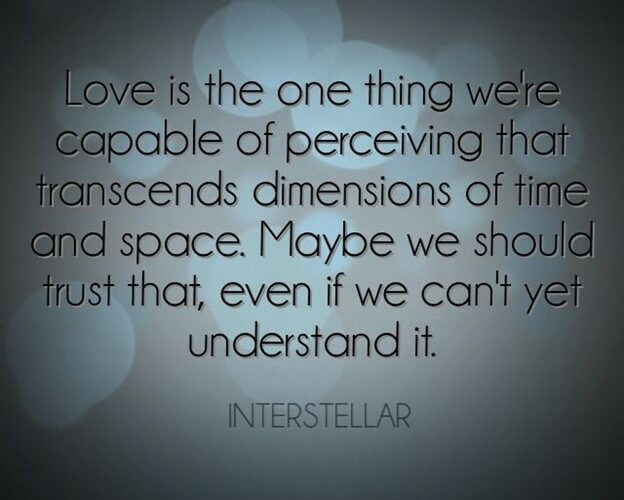Notions of Humanity
An Overly Thoughtful Analyzation of the movie Interstellar
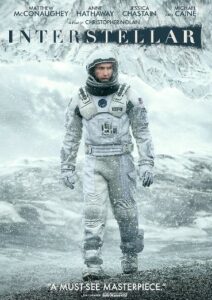
This movie review is long overdue. By now I have seen it approximately 100 times. I have purchased the accompanying books and gained new knowledge from deep dives on interesting humanity, space, and historical topics. I have learned about the 1940s Dust Bowl era and watched a 4-hour documentary on the Dust Bowl era. This movie has given me so much by way of brain, and mental stimulation. Today, as I rewatch this masterpiece of a movie again, I asked myself; why haven’t I written an official TanelaWrites Review on this movie? I got no good answer, so here I go.
Before I get started, critics please note a few things.
- I will not be debating scientific truths I cannot explain or prove.
- I will not be implying that aliens or beings are real.
- This movie is probably one of the most intriguing, well-written, cinematically perfect films. This is not for debate and if you come to me, to debate, please be prepared.
- God is real and created all things, and loving this movie does not mean I will debate that fact with anyone.
Summary
For those who have not seen the film, here is your simplistic overview. Matthew McConaughey plays Cooper, widowed father of 2 adolescent children living in a contemporary dystopian-like timeline. He is drawn to a secret lab location where scientists, astronauts, and other super smart people convince him to fly a ship into space to identify another planet for the people of Earth to live on. The earth is dying due to drought and there is very little chance that people will survive another generation. He goes on the mission with a small crew including Anne Hathaway as Amelia. Their job is to go to the designated planets, rescue the previous explorers sent, evaluate what they have found, and determine if the planet is viable for people on Earth to travel to and live on. Meanwhile on earth, Dr. Brand, who is Amelia’s father played by Sir Michael Caine, is the project leader working on a formula that would solve the equation of gravity and allow for the people on earth to be transported into space towards this new planet. As you can imagine with any Christopher Nolan film, there are travel challenges in space. Challenges of the mind and heart on earth and a host of moral issues are explored during the film.
SPOILERS STOP HERE
Now for those you haven’t seen the film and are interested stop here. There will be spoilers.
While this movie does have a few surprising and wildly intense moments; it is not written to give you large unexpected reveals. Even so, I do not want to ruin the movie for you. So again, if you want to watch the movie first and come back to read my assessment; I understand.
One of the things I love about this film is the very real highlight of the current state of planet Earth. In my summary, I mentioned that the setting is contemporary dystopian. That is because you can tell by the visuals of pickup trucks, drones, and basic home structures that the film is set in the 21st century. I am just not sure what year. However throughout the movie you hear things like NASA doesn’t exist anymore, and there is no more government. The most telling sign is at the beginning of the film where the teacher refers to the needs of the world. David Oyelowo plays the principal at the school and makes it clear to Cooper that the world doesn’t need thinkers or engineers, they need farmers to make food.
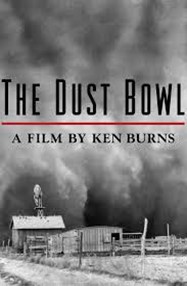
The food drought is a key element in the film and marks my 3rd favorite concept in the movie. I am always reengaged in history listening to the stories of the drought. The viewers soon learn that some of this story is told from the future viewpoint. The filmmakers are amazing and it takes a minute for the keen eye to pick that piece up! The footage shared of seniors explaining the drought and “dust” is real footage from a real 2012 documentary called The Dust Bowl directed by Ken Burns. It covers the drought of the Southwest and the overall food shortages of the 1930s and 40s. In my opening, I shared how I have been on many deep dives because of this film. The Dust Bowl Documentary is one of them and if you are not familiar with the post-depression period time, go to the library and learn something.
I found interest in how what we did to natural resources leading up to the 1930s sort of mirrors what is happening now in 2024. And the fact the filmmakers could blend explanations of farming issues, food availability, and weather catastrophes from 1930 with my lifeline makes me think about the next generation. It makes me think about our food deserts and food quality problems. In the movie, Cooper is thinking about his children and the future. The entirety of the film he is focused on how to save the people on Earth and give them a chance. For a time after initially seeing Interstellar and researching The Dust Bowl period, I became interested in food gardening. I realized I didn’t know how to grow my own food and survive if there was some sort of manufacturing crisis.
After the viewer gets a clear understanding of the current state of the world we are led to the action. The discovery of the secret NASA lab is probably the area of the film that most critics attack. In my honest assessment, I can see how the elements came together a little too quickly. And for those non-science fiction lovers, the project breakdown about the galaxies and the black hole may be too much to process. However, I challenge you to dive in. There is a book (yes I bought it) called The Science of Interstellar by physicist Kip Thorne.
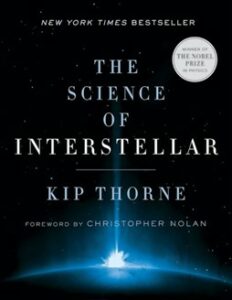
This book brings me to my 2nd favorite element. I know that God is creator of all things, right? Who is to say HE did not or can not create other galaxies? We know there are other solar systems right, so why would the hope of another habitable planet be off the table of reality? NO, I am not saying there are aliens or anything like that. See my opening statements. What I am saying is that it is truly impossible for us as humans on this gravity bound, oxygen driven planet to know all the things about space. It is impressive to me that writers Jonathan and Christopher Nolan mixed real-life scientific unknowns with creative imaginative possibilities. Small funny note, in the movie Men in Black, at the very end (almost post-credit scene), you see the camera span all the way to space and beyond and you see two large alien figures playing with two galaxy looking marbles. I get tickled every time I see that part!
So, the space crew heads out to find a new home. As they travel we learn more about the plan B, which is to auto-populate the new planet. Amelia’s sole specialty is focused on the fertilized eggs that are to be used for a population bomb, in case the gravity problem is not solved. The viewer also gets another mini science lesson on space travel and lightyear. The black hole creates a sort of time shift. For every minute the crew spends around this black hole discovering, it is 7-10 years on earth. Cooper is losing time with his children, and his father-in-law (Christopher Plummer) is aging and this thought makes me think about the importance of balancing living life and thinking of the future. Cooper is trying to save humanity but is constantly thinking about how this work is taking him away from his family. Working moms and dads, does that sound familiar! Amelia is thinking of the future of humanity, but also about getting to her boo who was sent on the initial discovery missions. Cooper is focused on finding a new planet and home so he can bring his family to safety. But they all are missing time on earth for the project. People pass on, the world gets worse with people dying of breathing issues and famine. Cooper and the crew are not there on earth to help.
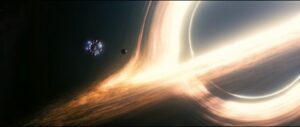
When the first space accident happens and they lose a crew member, I immediately think how could this voyage be worth it. If it was me, I would love to think I would soldier on for humanity, but the truth is I would pack my space suit and head home to be with my family. When the second mission failure happens, Dr. Mann, played by Matt Damon, highlights this critical thought. In your last moments, are you thinking of your loved ones or are you thinking of your unfinished goals? He pushes through what I think of as space delirium and locks in on the “mission” but in truth, he was thinking of himself and the years of isolation he suffered on his non-viable planet.
I will not ruin the rest of the movie for viewers, but I will say that during the climax, you will have some of the best visual effects you will see in film. From the black hole on screen to the dramatic flight acrobatics that Cooper takes to save the crew, it’s all amazing. Watch this movie on a big TV in 4K if you can.
Understanding that we have to think about others before we think of ourselves is the overarching complex moral issue of the film. It is displayed with Coop first leaves the planet to save his family. We see it when Dr. Brand continues in a decade long charade meant to convince people that Plan A would be successful. We really see it when Dr. Mann loses his cool and tries to stop Coop from leaving the frozen planet. The best display comes at the end of the movie where Coop is determined to drop himself into a black hole with the hope to see his family again. He realizes, somewhat too late that his family needs him present. He realizes that the most important thing is the moments we live in now and goes through extraordinary measures to hold on to the now; despite knowing decades have passed and that humankind may not have much life left to live. Cooper makes his move to get to his family. This brings me to my favorite concept in the film.
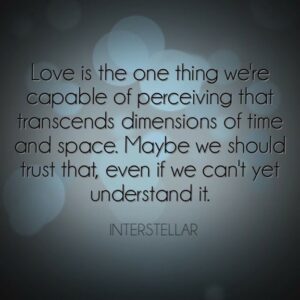
Love drives all things. I believe it is the one true thing that makes us human. Our ability to love. This thought and idea is what I see in this film. I see the writer’s faith and belief, even if they have never publicly said it. I see what most optimists see. If you love and show love, things will work out accordingly. At the end of the movie, Cooper launches himself into gargantuan (black hole) with the hope that he will make it home to his daughter decades and lightyears away. He made her a promise. Despite failing in the plan to find a place for humans, and knowing the idea that the ready-made colony was not a guarantee, he is driven by love.
Love is directional. It can be focused in particular directions to do specific and intentional things. What if we as humans moved in love with every action? Not greed, not ambition, but only actions that are driven by love of another. I cannot help but think we would be better off in this world. Drought or famine would not exist because we would ALL be working together in love for another person.
In the movie, Cooper’s love transcends space travel, co-worker sabotage, gravity, and even time. It is the single most important factor and ultimately the key to the survival of the human race. What I hope viewers learn is what I have understood and believed for years. Love is what connects us. Love is what can guide us. And Love is all God wants us to know from him and others around us.
